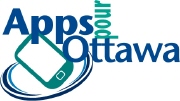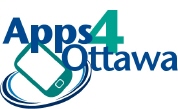I posted the Dartmouth Atlas of Health Care – Geography is Destiny that was discussed in Miller-McCune on CagList & Geographers shared some Canadian examples. (just updated – February 4, 2011)
- MyPeg – Tracking Well-Being in Winnipeg
- Atlas of Canada – Health Matters
- Infonaut – “putting health on the map”
- Martin Prosperity Insights – Food Deserts and Priority Neighbourhoods in Toronto
- Atlas Santé Montréal, du Carrefour montréalais d’information sociosanitaire
- New Brunswick Health Association Environmental Health-Mapping Project
- Diabetes in Toronto, Institute for Clinical Evaluation Sciences
- Saskatoon, GIS and Health
- Ottawa Neighbourhood Study. U Ottawa, CIHR and City of Ottawa
- UVic Geography Dept members have put together an online BC Atlas of Wellness
- UBC Centre for Health Services and Policy Research has published 2 editions of a BC Health Atlas. These and background reports related to issues of health & health care mapping are available for download from CHSPR’s publications webpage.
- Primary Health Care Atlas & Pharmaceutical Use in Canada Atlas (CHSPR).
- Manitoba Child Health Atlas
- Institute for Clinical and Evaluative Sciences (ICES) has created some ‘Atlases’
- Human Early Learning Partnership at UBC has been using cartography for public policy related to early child development.
- Social Planning Council of Ottawa Community Information and Mapping System (CIMS) is an infrastructure to support voluntary sector groups and community members in Ontario to do local community based research to understand and improve population health.
- Canadian Network of Population Health Observatories – Calgary and area zone Atlas
- GeoConnections Public Health Map Generator
Health Mapping URLs in Del.icio.us, Cancer Surveillance, cardiovascular, chronic, health in general.
I will go looking for more at some point.


Comments on Posts